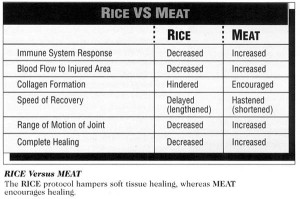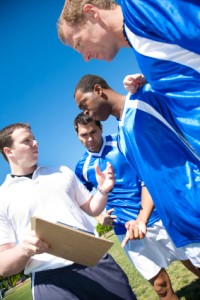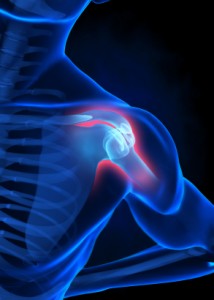The RICE protocol is widely advocated in the treatment of acute soft tissue injuries, and is therefore frequently utilised in the acute phase following most sports injuries. Whilst RICE should still be used in the case of acute muscle strains, given the potential for adverse consequences such as compartment syndrome, there are some who are suggesting that the RICE protocol has reduced efficacy in the management of acute ligament (and even tendon) sprains.
Why is this so? Read on to find out.
A clinical mentor of mine once made an interesting commentary on the world of sports, or indeed all realms, of physiotherapy. It was an analogy comparing sports physiotherapy and the assessment of athletes to a murder mystery. It was so captivating I decided to expand on it here.
Introduction Concussions are a common sports injury, most often sustained by athletes involved in contact sports. Therefore, the sports physiotherapist will regularly assess, diagnose and subsequently manage this condition. Concussion is a potentially life-threatening condition, and thus appropriate evidence based assessment and management is crucial. However, there is a broad and often confusing body of […]
PROLOTHERAPY IN THE MEDIA You may have heard talk in the media recently about Phil Graham (an elite Australian rugby league player) having “sugar injections” following his pectoral muscle injury. Read here. I found it interesting to hear the Sydney Roosters team doctor, John Orchard, is using these injections, commonly know as ‘prolotherapy’, in an […]
Thanks for staying tuned, as I discuss the final 3 reasons why I feel sports physiotherapists love working with athletes.
In my experience in the ‘sports physiotherapy’ arena I have developed high levels of rapport with athletes. Whilst I’m sure we would all agree that as physiotherapists (or physical therapists) we have the high level communication skills necessary to develop rapport with patients from all walks of life. However, I’ve often found developing rapport with athletes a complete no-brainer. There are a few easy explanations to why this is.
In this evidence based practice post we review an article in which the authors aim to identify all published accounts of diagnostic accuracy for clinical tests of Superior Labral Antero-Posterior (SLAP) lesion of the shoulder, and assess the pooled positive likelihood ratio (PLR) of the identified tests.
What did they find? Read on…
WHY DO YOU HAVE A PASSION FOR WORKING WITH ATHLETES?
This should be easy to answer, shouldn’t it? If you are reading this post then you must have some interest in sports physiotherapy.
Well, when I decided to write a blog post about why I love working with athletes I went to the “think-tank”. At a social event (going to watch the rugby) where I was surrounded by physiotherapists with experience working with athletes from various sports, I asked them what are the perceived benefits of working with athletes. The intelligent and insightful responses that followed seem to fall under seven categories, which are discussed below.
In the past 10 years research and new insights into tendon pathology has seen our understanding grow. Recently most therapists have had to stop themselves from saying the old term of “tendonitis” and learn the new term “tendinopathy”. But what else is important other than the new term.
Do you want to become an invaluable, and more importantly irreplaceable, member of your sporting teams organisation? As a sports physiotherapist, sports or athletic trainer, or even simply “team strapper” I would assume that your answer is a resounding yes. Read on to discover five ways to make yourself an invaluable member of your sporting team.
Evidence Based Practice Review: Eccentric Exercise Technique Offers Easy, Affordable Intervention for Chronic Lateral Epicondylitis.
Aims: To evaluate the impact of the addition to the “Tyler Twist” eccentric training exercise to “standard treatments” for patients with chronic lateral epicondylalgia.
Radial tunnel syndrome is rare, it is challenging to differentially diagnose and can be a monster to manage. If you have a recalcitrant case of tennis elbow then this post will interest you! This article discusses the best available evidence for assessment and management of radial tunnel syndrome.
Have you ever heard of snapping scapula syndrome? If you answered no, I would not be too surprised. Whilst this condition is more common than you may think, it seems to be underappreciated within the physiotherapy. Thus, this article will discuss snapping scapula syndrome including what it is, why it occurs and what you need to do to fix it!













